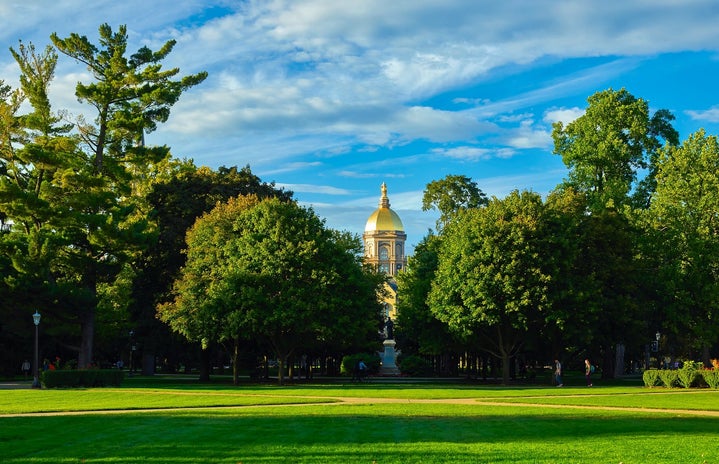If I were to sit down and make a list of all of the things I would change about Seattle University I suspect I would never stop writing. However, in this last quarter, the academic issues of Seattle University in particular have become increasingly obvious to me.
- Grades
-
It is absolutely ridiculous that as a college student I need to be calculating every single little point I earn, from pop quizzes to worksheets to how many times I raise my hand. That is not what college is about. The accumulation of points is no indication of whether or not I actually learned anything, and therefore it should not matter. I, for one, think that rather than letter or number grades, we should be provided narrative assessments from our professors so we can actually understand what we need to improve on. At the end of the day, there’s not much of a difference between a C and an A–you still graduate with the same piece of paper.
- Worksheets and Busy Work
-
Nothing makes me angrier than when I have to fill out worksheets for a college class as though I am still in elementary school. I not only have better things to do with my time, I also know that I am capable of higher and more complex thinking. I am all for readings and reflections and class discussions; that is how we learn, especially when most of our classes are not lectures. I don’t learn anything by filling in the blank with vocab words or making a campus bird guide that I will just throw out next week.
- UCOR Requirements
-
UCOR is a really great alternative for people who are still finding their passion and deciding what they want to study. But for those of us who have an exact plan for every single quarter until graduation, it is a waste of money. Not to mention that fact that most of the classes have nothing to do with my major! I would much rather be graduating a quarter early with $15,000 in my pocket, on the hunt for a job, than waste my time in an art or religion class.
- Professors Who Are Experts First and Educators Second
-
It is a wonderful thing to work with and learn from people who have so much knowledge and experience in a variety of different fields. But when they have no teacher training, individuals are horribly unprepared and incapable of actually conveying all of that knowledge in a way which is digestible to students. Knowing something and knowing how to teach something are two distinctly different things. There is this strange paradigm in universities where, as an academic institution, they want to hire as many of the smartest people in each field, yet that does not guarantee that they are hiring the best teachers for their school. The number of classes I have had with intelligent professors who perfectly exemplify every method of bad teaching that I have ever learned. It is actually rather comical to go from my teaching class, where we talk about bad teaching methods in a theoretical way, to my other classes where I get to see such teaching methods live and in person. Just saying, the academics should reserve themselves to academic research, not teaching. Universities should hire teachers, or at the very least give their professors some teacher training.
- Assignments During Dead Week
-
There is a reason it is called dead week. At most universities, the week before finals is reserved as time for students to study and prepare without having to go to class or worry about other assignments. That is not the case at Seattle U. For example, I have two final exams during finals week and two final essays due, but instead of spending this week studying and writing, I have to spend this week doing readings and homework assignments for my classes. At Seattle U we even have class on the Monday of finals week which I do not understand because it has never been anything more than a waste of time.
In the end I know that the Seattle U today is leaps and bounds better than the Seattle U of 20 years ago, as the professors remind us every time they want us to fill out an evaluation, but that is still not enough. Seattle U needs to prioritize its students and their learning experiences. Each of these changes don’t have to be massive overhauls of our institution, and they would result in a more student-centric and effective learning experience. As things are now, Seattle U cares more about its bottom line–money, which contradicts both its social justice mission and its sole job as an educational institution. Seattle U needs to reconsider its priorities, especially in this day and age where students are even more involved in fighting for change and have so many more options for education than a traditional university setting.



